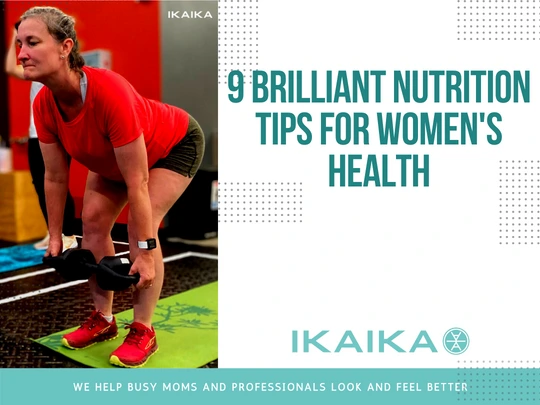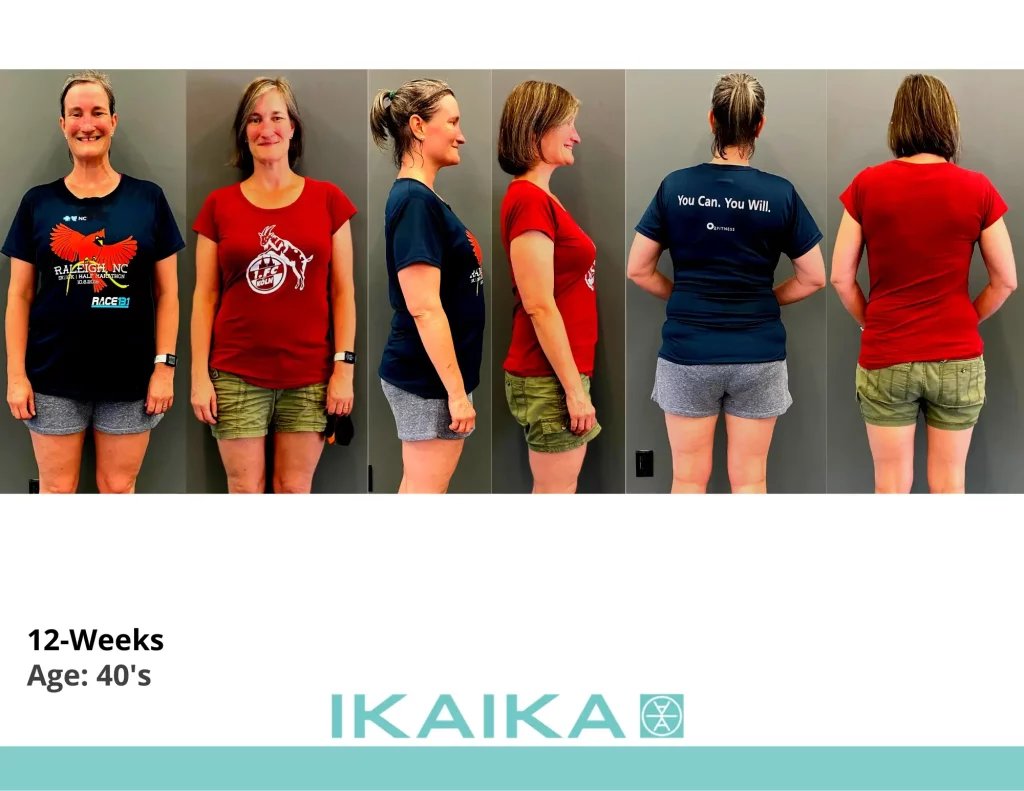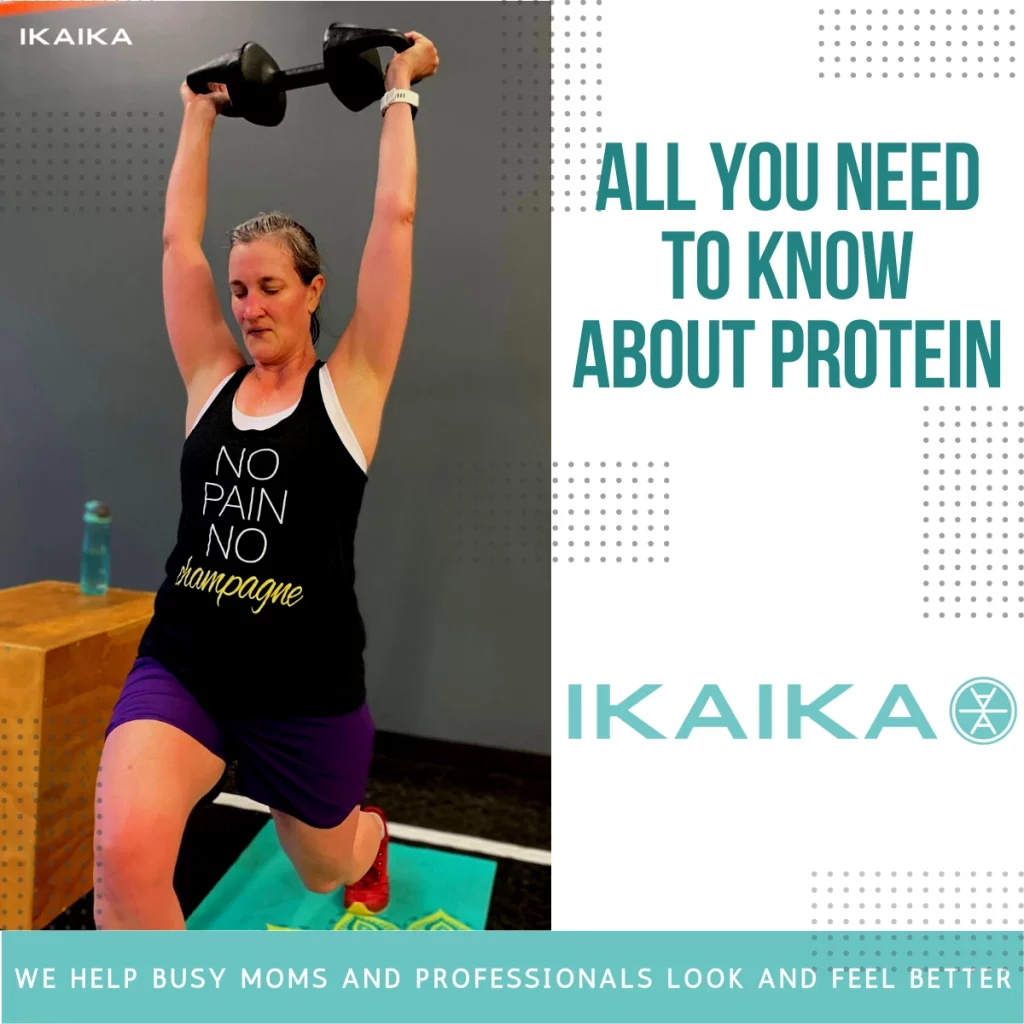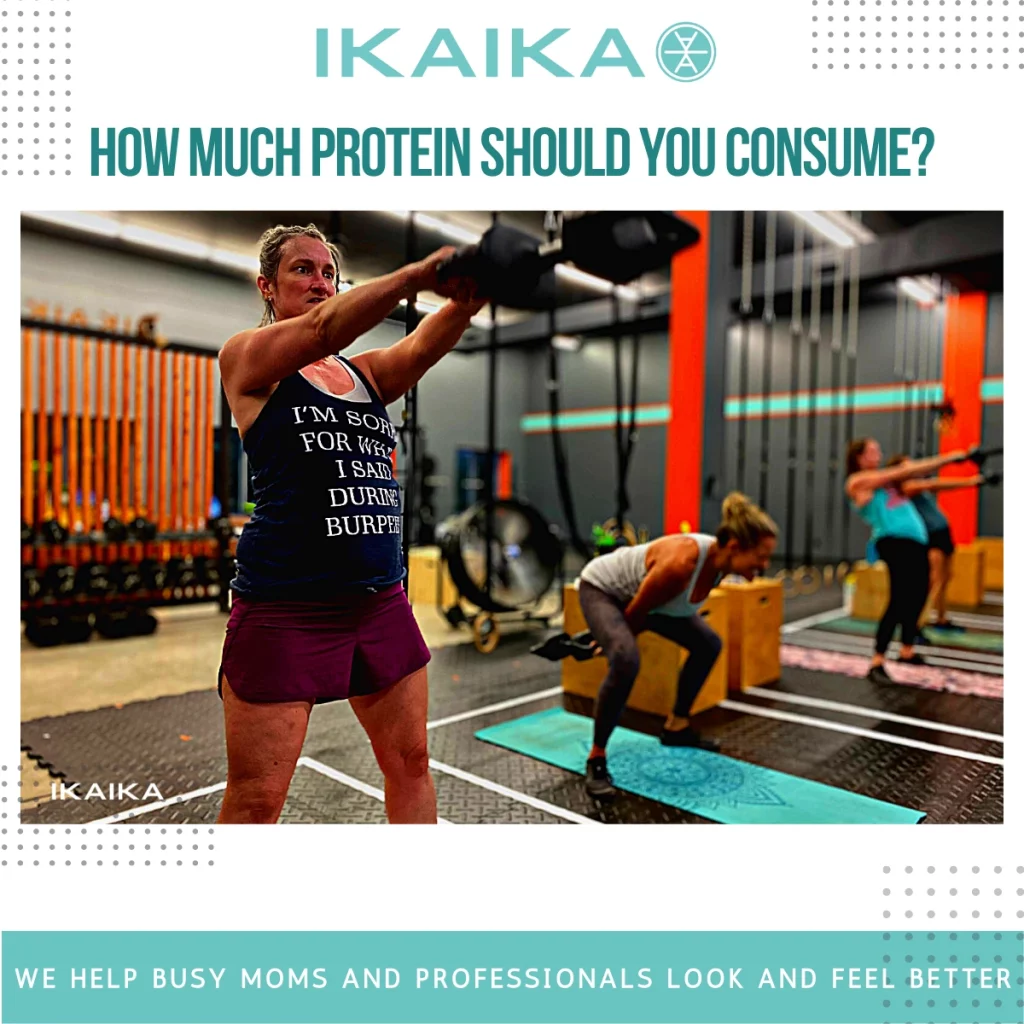As any fitness enthusiast will tell you, nutrition is key to achieving results in the gym. But what many people don’t realize is that nutrition is also vital for women who want to build more lean muscle and strength, boost brain function and mood, increase energy levels, ease PMS symptoms, and even enhance sexual satisfaction. That’s why women need to make sure they’re eating the right foods and getting the nutrients their bodies need. Here are a few recommendations that can help.


Table of Contents
All You Need to Know About Protein
Proteins are important in nutrition for many reasons. They provide the body with the building blocks it needs to create new cells, repair tissue damage, and support a healthy immune system.
In addition, proteins play an essential role in metabolism, helping the body to break down food and convert it into energy. For these reasons, it is important to ensure that you are getting enough protein in your diet.
Women, in particular, need to be aware of their protein intake, as they are more likely to have nutrition deficiencies due to menstruation and pregnancy. Athletes and people who go to the gym regularly also need to be sure they are getting enough protein, as their bodies require more of this nutrient to repair muscles after exercise.
It is amazing that with just 20 amino acids, the human body can make more than 50,000 different proteins. These proteins perform a variety of important functions, from carrying oxygen in the blood to helping the body digest food.
Some proteins are even involved in cell signaling, which is how the body communicates between different cells. These proteins play a vital role in keeping the body healthy.
Women who are pregnant or breastfeeding need to be especially aware of their protein intake, as these nutrients are essential for the developing child.
Women who regularly exercise also need to be sure they are getting enough protein, as it helps to repair and build muscle. With so many important roles, it is clear that proteins are essential for good health.
By including protein-rich foods such as meat, poultry, fish, eggs, and dairy in your diet, you can ensure that your body is receiving the nutrition it needs.

How Much Protein Should you Consume?
Sports nutrition is a constantly evolving field, and new research is constantly being released that can help athletes to optimize their performance. One area of nutrition that has been widely studied is protein requirements.
The current recommendations set by the Food and Nutrition Board (FNB) for protein intake are 0.4 grams per pound of body weight for both males and females. However, new research suggests that athletes require significantly more protein than the general population. Strength athletes may need as much as 1 gram of protein per pound of bodyweight per day.
For a 145-pound woman, that would be close to 150 grams of protein per day. While this may seem like a lot, it is important to remember that protein is an essential nutrient for supporting muscle growth and recovery. Therefore, ensuring that you are meeting your protein needs is vital for optimizing your performance in the gym.
Women who want to build muscle and lose fat should focus on eating lean protein sources such as chicken breast, turkey breast, eggs, lean beef, low-fat dairy, fish, as well as whey, soy, and casein protein powders.
These foods are packed with nutrition and will help women reach their fitness goals. Additionally, women who eat lean protein sources tend to have more energy and feel fuller longer, making it easier to stick to their nutrition and workout plans.
So if you’re looking to get the most out of your gym time, be sure to include plenty of lean protein in your diet.

The Right Amount of Protein for Your Nutrition Needs
If you’re looking to lose weight, you’ll need to be careful about the foods you eat. Consuming too many calories from the wrong types of foods can lead to weight gain. However, research shows that protein can help to decrease hunger and promote weight loss.
A study from the University of Washington School of Medicine found that subjects who ate a high-protein diet lost an average of 10 pounds over 12 weeks. Protein is an essential part of a healthy diet, and it can help you to avoid overeating and reach your weight loss goals.
When combined with regular exercise, a high-protein diet can be an effective way to lose weight and get in shape. So if you’re looking to slim down, make sure you include plenty of protein in your diet.
Many people believe that protein is essential for building muscle, but new research suggests that it may also be effective for weight loss. French scientists have found that dietary protein causes the small intestines to increase glucose production, which travels to the liver to trick the body into thinking it is adequately fed.
As a result, the body reduces its production of ghrelin, an appetite-stimulating hormone. Australian researchers have replicated these findings and found that subjects who were given a dose of whey or soy protein had lower levels of ghrelin and higher levels of cholecystokinin, a hunger-reducing hormone.
These hormone levels caused subjects to eat 10% fewer calories at a buffet-style meal three hours after the protein dose, as compared to those who received a dose of glucose. This research suggests that protein could be an effective tool for weight loss, especially for women who are trying to avoid the dreaded “hunger pangs” at the gym.
Being nutrition savvy is not only for people who are looking to shed a few pounds. Women who work out frequently should also be aware of what they are eating and how it will affect their workout.
A new study from the University College London has found that a high protein diet can help to reduce hunger and improve workout performance. The study found that subjects who ate a 1000-calorie meal that was 65% protein were significantly less hungry and had higher levels of the hormone peptide YY (PYY) as compared to those who ate meals that were 65% carbs or 65% fat.
PYY is produced by gut cells and helps to reduce hunger by sending signals to the brain. This is beneficial for women who are looking to maintain their weight or build muscle, as it can help them to control their appetite and eat less overall.
So next time you’re at the gym, make sure you fuel your workout with a nutritious meal that includes plenty of protein.
Protein as Fuel
Getting the right nutrition before a workout is critical, especially for women. A protein blend that contains whey is a good idea here, as the rapid digestion of whey and excellent concentration of BCAAs make it a must-take protein around workout time.
This allows these important amino acids to get into your system where they can be used during the workout to prevent muscle breakdown and enhance recovery and growth. Yet there’s another reason to go with whey before workouts.
Whey has been shown to boost gym performance, meaning you’ll be able to work harder and see better results from your time at the gym. So if you’re looking to get the most out of your workouts, be sure to stock up on whey protein before heading to the gym.
For many women, nutrition is a key part of their fitness routine. Getting the right amounts of protein, carbohydrates, and fat helps them to stay energized and build strong muscles.
However, women often face unique challenges when it comes to nutrition, especially when trying to lose weight or gain muscle mass. One way to overcome these challenges is to supplement with whey protein.
Whey protein is a high-quality protein that contains all of the essential amino acids your body needs for growth and repair. In addition, whey protein is easy to digest and absorb, making it an ideal source of nutrition for active women.
Furthermore, research has shown that whey protein can help to improve exercise performance and recovery after exercise. For these reasons, whey protein is an excellent choice for any woman who is looking to improve her nutrition and gym performance.
Protein for Fat Loss
Protein is an essential nutrient for both men and women, but it is especially important for women who are looking to lose weight. That’s because protein helps to boost your metabolism, which means you’ll burn more calories throughout the day.
In addition, protein helps to slow down the digestion of carbs, which can lead to burning more fat. Research shows that a high protein diet can raise your metabolic rate by up to 20-30%, while a high carb diet may only raise it by 5-10%.
This makes protein an essential part of any nutrition plan for women who are trying to lose weight. In addition to including protein in your diet, you should also make sure to get plenty of exercises. Women who are trying to lose weight should aim for at least 30 minutes of moderate exercise every day. This can be something as simple as going for a walk or a light jog.
However, if you want to see results, you should consider going to the gym and doing some strength training. Strength training will help you build muscle, which will, in turn, help you burn even more calories.
So, if you’re looking to lose weight, make sure you’re getting enough protein and exercise.
Protein for Recovery
Women who are looking to build muscle and improve their overall fitness should make sure to include a post-workout protein shake in their nutrition plan. Numerous research studies have shown that this is the best way to boost muscle protein synthesis at the most critical time, as soon as the workout is over.
This is not only the time when you can take muscle protein synthesis the highest than any other time of day and therefore drive the most muscle rebuilding and growth, but if you don’t provide your muscles the proper nutrition at this time they will break down rather than rebuild.
Studies confirm that a post-workout protein shake enhances recovery, muscle strength, and muscle growth, so it’s an essential part of any woman’s gym routine.
Protein for Your Brain
We all know that working out and eating right is important for maintaining a healthy body, but did you know that they can also have a positive impact on your brain?
That’s right – research shows that nutrition plays a key role in cognitive function. For example, a study from the Swiss Federal Institute of Technology found that students who ate a breakfast higher in protein than carbs performed better on memory and cognitive tests than those who ate a breakfast higher in carbs.
So if you’re looking to boost your brainpower, be sure to include plenty of protein in your diet. And it’s not just protein that’s important – other nutrients like omega-3 fatty acids and antioxidants are also essential for maintaining brain health.
So next time you hit the gym or the grocery store, keep your noggin in mind – after all, what’s good for your body is also good for your mind!
DHEA for Energy, Strength, and Fat Loss
DHEA is a hormone that is produced naturally in the body and it serves as a precursor to testosterone and estrogen.
Women can benefit from DHEA supplementation, as it can lead to increased energy levels, enhanced brain function and mood, increased strength and muscle mass, and improved fat loss. Women who take DHEA may also notice improved nutrition and overall health.
DHEA supplementation is most effective when combined with a healthy diet and regular exercise. Women who are looking to build muscle mass may especially benefit from DHEA supplementation, as it can help to increase strength and size.
However, it is important to consult with a physician before beginning any type of supplement regimen.
Caffeine for Better General Health
Caffeine is the world’s most popular stimulant, thanks to the fact that it exists naturally in coffee beans and tea leaves.
While we all could use a little “wake-me-up” first thing in the morning, or boost before the gym, caffeine offers benefits beyond its stimulating properties – it’s one of the most studied ergogenic aids and is effective for booting muscle strength, muscle endurance, and mental focus.
Specifical to women is caffeine’s ability to suppress the cognitive decline that occurs with aging, as discovered in a 2010 study in the Journal of Alzheimer’s Disease that showed no such protective effect of caffeine for men.
This study lends further support to a 2007 study by French researchers showing a similar neuroprotective benefit of caffeine in women. Thanks to these health benefits, nutritionists recommend incorporating moderate amounts of caffeine into our diets – about 200mg per day, the equivalent of two cups of coffee.
Women who consume the highest levels of caffeine are 20% less likely to become depressed, according to a 2011 study from Harvard. The study, which tracked women for almost 20 years, suggested that caffeine consumption may have a protective effect against depression.
This may be due to caffeine’s ability to reduce estrogen levels, as discovered by the National Institutes of Health. The NIH study found that caffeine may increase sex-hormone binding globulin (SHBG) levels, which could lead to lower estrogen levels.
In addition, a recent study published in the journal Nutrition & Women’s Health found that women who participate in regular physical activity and consume a healthy diet are less likely to experience anxiety and depression than those who do not.
The study’s authors suggest that nutrition and exercise can help to reduce the risk of mental health problems in women.
When it comes to nutrition, everyone is different. What works for one person may not work for another. That’s why it’s important to experiment and find what works best for you. With that said, some general guidelines can be useful for everyone.
For example, many experts recommend that women consume more protein than men. This is because women tend to have less muscle mass than men, and therefore need more protein to maintain their muscles.
Similarly, many experts recommend that people who go to the gym regularly consume more protein than those who don’t. This is because lifting weights helps to build muscle, and muscles require protein to grow.
So, if you’re trying to build muscle, you’ll need to consume more protein than someone who isn’t trying to build muscle. As for when to take caffeine, pre-workout is the best time, but you can also take caffeine any other time of day you want (aside from right before you go to bed, since it may be hard to fall asleep after having just taken caffeine).
While coffee may be a fine way to get your morning pick-me-up and provide some health benefits, it’s caffeine in supplement form (mainly caffeine anhydrous) that has been found to provide the best performance benefits.
Final Thoughts from IKAIKA
While it’s important to eat a balanced and healthy diet, incorporating some of these protein-rich foods into your meals can help you reach your health and fitness goals.
If you’re looking for more information on how to improve your nutrition or want help creating a meal plan that fits your needs, our team at IKAIKA Fitness is here to help. Book your free No-Sweat Intro today and let us show you how easy it is to get fit and feel great!
IKAIKA Fitness is a gym in Durham NC dedicated to providing personalized fitness programs to busy moms and professionals.
IKAIKA Fitness strives in providing personalized programs that are safe, fast-paced, and efficient so busy moms and professionals can get back on track with their life goals – whether it’s exploring new places or just taking care of themselves mentally by seeking adventure through the activity!
We provide a safe, flexible and effective way to help you reach your fitness goals. Read what our members are saying about us, and how satisfied they are with the results through our Google Reviews.
We use functional movements along with customized nutrition plans so that we can get the most out of each workout for optimal results – it’s all about having fun while achieving success!
Schedule your FREE No-Sweat Intro so that we can learn about your goals, and help you reach them.
The best way to get in shape and healthy is by joining IKAIKA Fitness. Whether you want a quick workout or are looking for more of an intense experience, this place has something that will suit your needs! So don’t miss out on the opportunity- join now through HERE.
So don’t miss out on this opportunity to get fit and healthy and find out why IKAIKA is on its way to becoming the best gym in Durham. If you do not believe us, please take a minute to read our Google Reviews HERE.
So, what are you waiting for? Book your FREE No-Sweat Intro today!
References
Ito, T. Y., et al. The enhancement of female sexual function with ArginMax, a nutritional supplement, among women differing in menopausal status. J Sex Marital Ther. 2006 Oct-Dec;32(5):369-78.
Ghanbari, Z., et al. Effects of calcium supplement therapy in women with premenstrual syndrome. Taiwan J Obstet Gynecol. 2009 Jun;48(2):124-9.
Thys-Jacobs, S., et al. Calcium carbonate and the premenstrual syndrome: effects on premenstrual and menstrual symptoms. Premenstrual Syndrome Study Group. Am J Obstet Gynecol . 1998;179:444-452.
Alvir, J. M. and Thys-Jacobs, S. Premenstrual and menstrual symptom clusters and response to calcium treatment. Psychopharmacol Bull . 1991;27:145-148.
Thys-Jacobs, S., et al. Calcium supplementation in premenstrual syndrome: a randomized crossover trial. J Gen Intern Med . 1989;4:183-189.
Bertone-Johnson, E. R., et al. Calcium and vitamin D intake and risk of incident premenstrual syndrome. Arch Intern Med. 2005 Jun 13;165(11):1246-52.
Bertone-Johnson, E. R., et al. Dietary vitamin D intake, 25-hydroxyvitamin D3 levels and premenstrual syndrome in a college-aged population. J Steroid Biochem Mol Biol. 2010 Jul;121(1-2):434-7.
Santos, C., et al. Caffeine intake is associated with a lower risk of cognitive decline: a cohort study from Portugal. J Alzheimers Dis. 2010;20 Suppl 1:S175-85.
Ritchie, K., et al. The neuroprotective effects of caffeine: a prospective population study (the Three City Study). Neurology. 2007 Aug 7;69(6):536-45.
Lucas, M., et al. Coffee, caffeine, and risk of depression among women. Arch Intern Med. 2011 Sep 26;171(17):1571-8.
Ganmaa, D., et al. Coffee, tea, caffeine and risk of breast cancer: a 22-year follow-up. nt J Cancer. 2008 May 1;122(9):2071-6.
Schliep, K. C., et al. Caffeinated beverage intake and reproductive hormones among premenopausal women in the BioCycle Study. Am J Clin Nutr. 2012 Feb;95(2):488-97.
Nagata, C., et al. Association of coffee, green tea, and caffeine intakes with serum concentrations of estradiol and sex hormone-binding globulin in premenopausal Japanese women. Nutr Cancer. 1998;30(1):21-4.
Morales, A. J., et al. The effect of six months treatment with a 100 mg daily dose of dehydroepiandrosterone (DHEA) on circulating sex steroids, body composition and muscle strength in age-advanced men and women. Clin Endocrinol (Oxf). 1998 Oct;49(4):421-32.
Bloch, M., et al. The use of dehydroepiandrosterone in the treatment of hypoactive sexual desire disorder: A report of gender differences. Eur Neuropsychopharmacol. In press, 2012.
Latunde-Dada, G. O., et al. Iron metabolism in athletes- achieving a gold standard. Eur J Haematol. In press, 2012 .
McClung, J. P., et al. Iron status and the female athlete. J Trace Elem Med Biol. 2012 Jun;26(2-3):124-6.
McClung, J. P., et al. Longitudinal decrements in iron status during military training in female soldiers. Br J Nutr. 2009 Aug;102(4):605-9.
Vaucher, P., et al. Effect of iron supplementation on fatigue in nonanemic menstruating women with low ferritin: a randomized controlled trial. CMAJ. 2012 Aug 7;184(11):1247-54.
McClung, J. P., et al. Randomized, double-blind, placebo-controlled trial of iron supplementation in female soldiers during military training: effects on iron status, physical performance, and mood. Am J Clin Nutr. 2009 Jul;90(1):124-31.